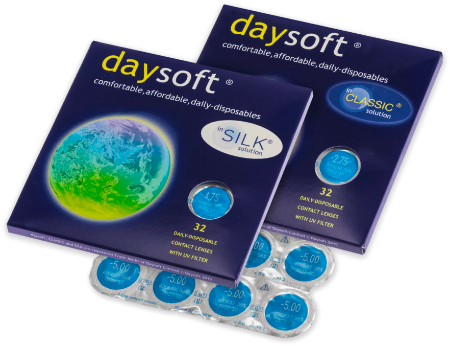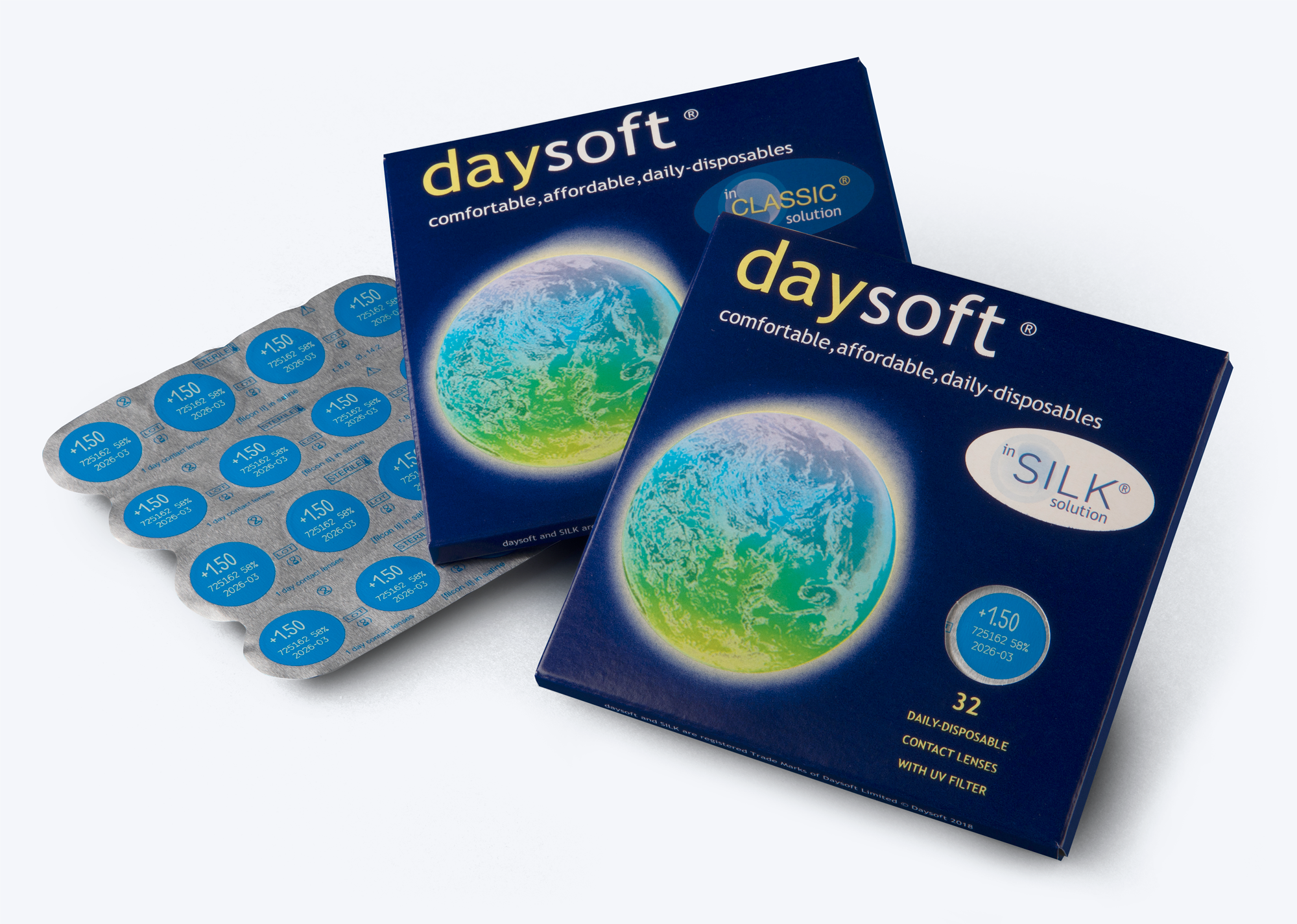If you wear contact lenses, you know the freedom and convenience they offer – but when was your last eye test? It’s easy to put it off when your vision seems fine, but regular check-ups are crucial – not just to keep your lenses working their best, but to safeguard your overall eye health.
According to Optometry Today, a staggering 19 million people in the UK haven’t had an eye test in the past two years. But does that really matter? Do you actually need one, or can you just order some contact lenses online and call it a day?
In this guide, we’ll break down how often you should have an eye test, what to expect during your appointment and why regular visits to your optometrist are essential – especially if you’re living the lens life.

How often should you have an eye test?
Experts recommend getting your eyes tested every two years – even if your vision seems perfectly fine – and annually if you wear contacts. But an eye test isn’t just about checking how well you can see. It’s a vital health check that can uncover underlying issues you might not even be aware of, such as diabetes, high blood pressure and even early signs of certain cancers. Your eyes can reveal a lot more about your overall health than you might think.
The golden rule for contact lens wearers
For most people, eye tests are recommended every two years but experts suggest an annual eye test to monitor your eye health, ensure your prescription is up to date and check that your lenses are still a perfect fit.
How much is an eye test?
According to Vision Matters 2022 Eye Q Report, the biggest reason people avoid eye tests is concern about the cost. Many believe eye care is expensive or simply not a priority in their budget. This misconception often leads people to put off routine check-ups, potentially allowing underlying issues to go undetected.
The second most common reason for skipping eye tests is the belief that “my eyes are fine, so I don’t need one”. However, eye conditions can develop gradually and without obvious symptoms, meaning regular tests are crucial for catching problems early – before they become more serious (and more costly to treat).
The cost of keeping your eyes happy
Eye test costs vary depending on where you go, but in the UK, you’re typically looking at around £20-£30. Pro tip: keep an eye out for NHS vouchers or discounts! It’s worth bearing in mind that daily disposable contact lenses are one of the best-value choices out there. Read our guide to finding affordable, high-quality options.
Is it worth it?
Absolutely. Think of it as an investment in your vision. A simple eye test can detect serious conditions like glaucoma or retinal issues before you even notice symptoms. That’s priceless.
David Cartwright, optometrist and chair of Eye Health UK, urges everyone who hasn’t had an eye test in the last two years to book one. “Sight-threatening eye disease and conditions like hypertension can present with no, or few, noticeable symptoms,” he explains. “If caught early though, they can be treated, or successfully managed, before they become a problem.”
How long does an eye test take?
An eye test usually takes about 20-30 minutes. It’s a small time commitment for such an important health check. During this time, your optician will assess your vision, test for eye diseases and check how well your lenses are working for you.
What happens during an eye test?
-
Vision check: assessing your prescription.
-
Eye health screening: detecting any underlying conditions.
-
Lens evaluation: ensuring a proper fit and adequate hydration.
-
Lifestyle chat: tailoring advice to your specific needs.

Four reasons to have regular eye tests for contact lens wearers
1. Keep your eyes healthy
Regular eye exams are crucial for more than just keeping your vision sharp – they can help catch early signs of conditions like dry eye syndrome and infections often linked to contact lens use. Read more about how to recognise signs of infection as a contact lens user.
But the benefits don’t stop there. Eye tests are a vital part of overall health care, capable of detecting a wide range of serious health issues, including high blood pressure, high cholesterol, heart disease, brain tumours and even the risk of stroke. Your eyes can reveal a lot about your general well-being, often spotting potential concerns before other symptoms appear.
In fact, poor vision is increasingly being linked to serious health conditions. A recent study from Johns Hopkins University found that up to one in five dementia cases may be directly connected to untreated eyesight problems, highlighting just how critical regular eye exams are for maintaining both your vision and cognitive health.
2. Better vision, better life
Getting your eyes checked regularly isn’t just about protecting your health, it’s about enhancing your everyday life. Clear vision can make everything easier, from reading and driving to working and enjoying your favourite hobbies. Addressing vision problems early can lead to:
-
Reduced fatigue and eye strain: uncorrected vision issues can lead to constant squinting, headaches and tired eyes. Proper eye care helps prevent strain, keeping you energised and comfortable throughout the day.
-
More confidence and independence: good vision allows you to navigate the world with ease, whether it’s driving safely, reading labels at the shop, or enjoying social activities without limitations.
-
Enhanced overall wellbeing: struggling with poor vision can be frustrating and even isolating. Clear sight can improve your mood, reduce frustration and contribute to a more active and fulfilling lifestyle.
3. Stay on top of your prescription
Your eyes can change over time – yes, even as an adult! A slightly off prescription can cause headaches, eye strain, or blurry vision. Don’t wait for symptoms: book an appointment even if your vision feels fine.
4. Ensure your lenses fit perfectly
Poorly fitting lenses aren’t just uncomfortable; they can damage your cornea. A check-up ensures your lenses are the right size and material for your eyes.
Eyes on the prize
Regular eye tests are essential, especially for contact lens wearers. They help spot any underlying issues that might not be obvious yet, like eye strain, infections or changes in prescription. Plus, they ensure your lenses fit properly, which is so important for comfort and eye health. Setting a yearly reminder is a smart move to keep everything in check.
Have you had your eye test recently, or is it time to book one? Find your nearest optometrist and grab an appointment.



